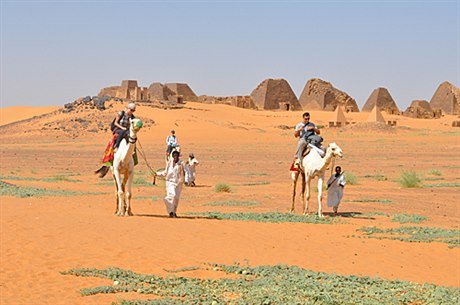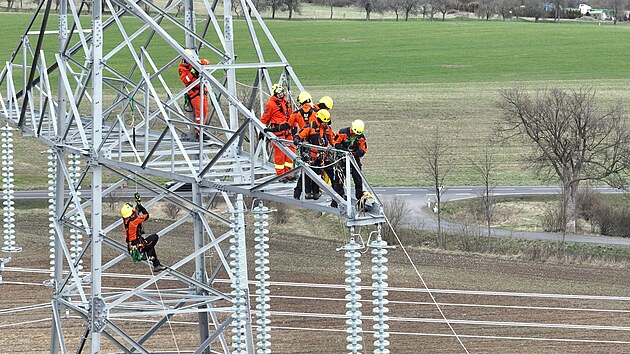The Czech National Museum’s archeological expedition to Sudan has returned after its second year of excavations, in what is the start of a long-term preservation and research project at the site of Wad ban Naqa, a town in the ancient Kushitic Kingdom of Meroë that contains a rich legacy of ruins.
Czech and Czechoslovak contributions to Egyptology have a long-running history, but Czech connections to the Sudan have a distinguished lineage of their own. In 1898, Kladno-born Bedřich Machulka embarked on a voyage through Africa that eventually led to him settling in Khartoum. There he set up hunting expeditions for the likes of Friedrich Otto III, the King of Saxony, and Karl Prince Esterházy, among other notable noble travelers.
What Machulka is most valued for today are the artifacts he continuously sent back to the Náprstek museum in Prague — along with the more than 2,000 photographs of the Sudan taken by him or by Richard Štorch, his friend and associate. An exhibition of the photographs was organized by the members of the expedition in Sudan in December 2010.
A helping hand among the ruins
On Jan. 24 the Náprstek museum was the site of the National Museum’s presentation of the second year of its Wad ban Naqa digs. The digs take place for a six-week period every fall. The most recent dig uncovered the remains of a smaller temple that was devoted to a Nubian lion god such as Apedemak or Sebiumeker.
There was also a continuation of the exploration of a circular complex of buildings which the expedition leader Pavel Onderka said was still a mystery as far as what their former appearance and function were. Conservation and restoration work was begun in the Palace of Amanishakhete.
The expedition also was able to provide aid to Sudanese schoolchildren through the support of Turkish Airlines. Gifts from the students and teachers of Czech elementary school Trávníky Otrokovice in Moravia, as well as 150 kilograms of toys and learning aids.
Efforts are also underway to secure funding for the construction of wells to provide access to safe drinking water — which the village’s current 3,500 inhabitants sorely lack. Expedition leader Onderka admitted that this issue became particularly close to the team during visits to village families, when local custom would not allow them to refuse the offer of a glass of water.
Onderka said that he took an initial sip, but when no one was looking the Sudanese guide accompanying them would quickly drink down all their glasses, and that with the help of some Egyptian medicine — taken at a double dose — he came through unscathed.




